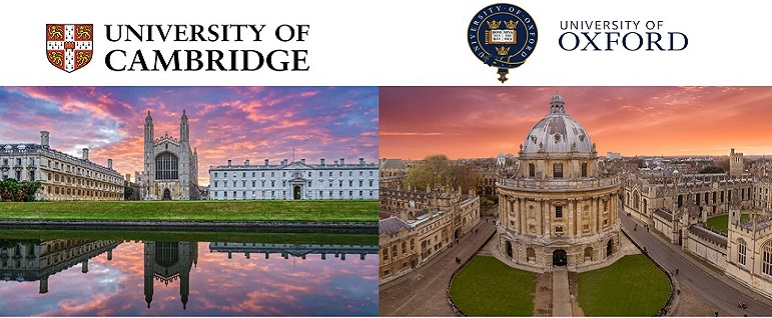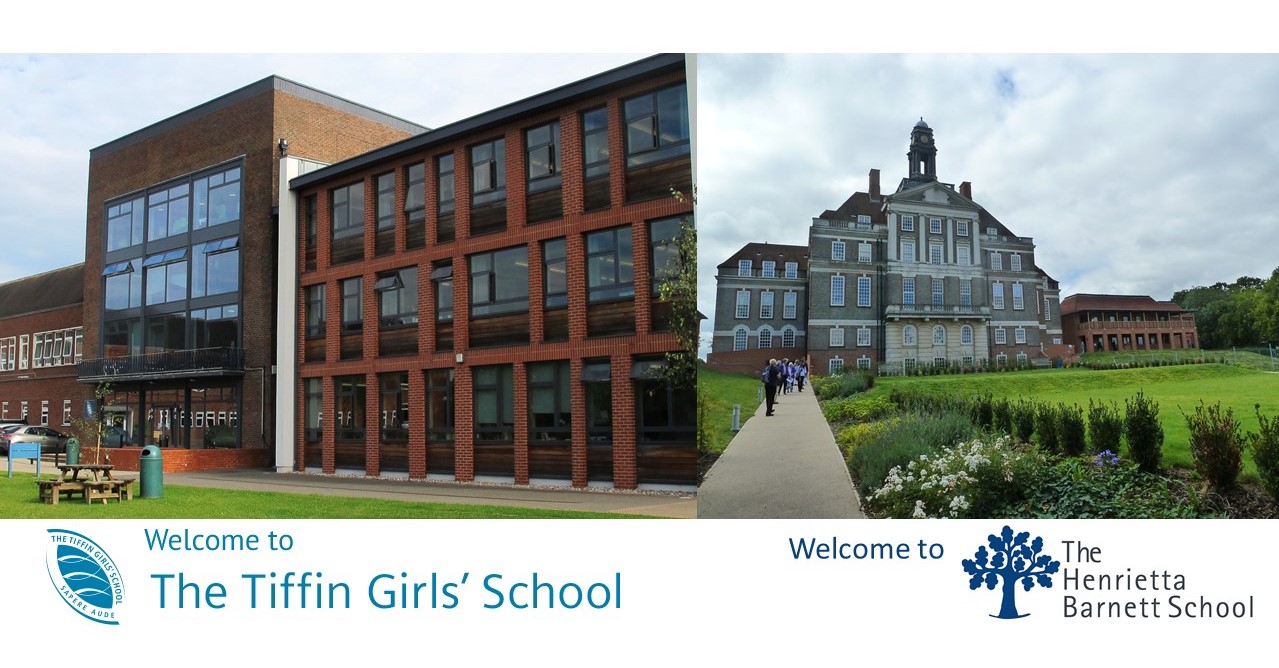

It is commonly thought that getting into Cambridge is impossible- you must first do admissions tests for many subjects, and then be selected for interview. Interviews are rigorous tests of how you think and approach problems that are unfamiliar to you and beyond the curriculum and once you have done all these steps, the admissions team from each college will sit down and review all the information they have on you: your predicted grades, your teacher reference, your personal statement, your academic achievements such as GCSE’s and other qualifications, your admission test scores and your interview performance and will finally select the few people they give offers to. Indeed when put like that, it seems extremely difficult, but it is not impossible.
Statistically 1 in 7 people who apply to medicine at Cambridge receive an offer and while that is tough competition, it is actually lower than universities such as Imperial where 1 in 11 people receive a medicine offer. What you will find however, to explain the statistic, is only the best candidates even attempt to apply to Cambridge or Oxford.
When I applied to Cambridge for medicine, I did so with the mentality that it was going to be extremely difficult and dare I say it, impossible. Now that I am on the other side of the application process and holding an offer from the college I applied for, I now know things that I wish I had known earlier. (My experience and advice is defined by my experience as a medicine applicant, but may be applied generally to any course.)
Firstly, above all, Cambridge looks for academic excellence- this might feel like an obvious point but it debunks the idea that you need to do extreme extracurricular activities and have rare and unique qualifications. Sure, they will add something to your application but it will be minor in comparison to grades and test scores and something they consider towards the end to grasp who you are as an individual. In the words of the admissions tutor from my college, ‘we are looking for individuals with academic excellence and a genuine interest in their field of study’. All the extracurriculars come after. So to those interested in applying to Cambridge and Oxford, the first and utmost thing you should do is achieve the greatest set of GCSE’s you can. Then achieve the highest set of predicted grades you can, which are grades that your teachers predict you will achieve in your A levels and will be given to you in Year 12 (you will need minimum A*A*A to even apply to Cambridge for medicine but this may differ for other courses). If your course has admissions tests, for medicine applicants this is currently the BMAT, then you must score as highly as possible. At Oxford this year for medicine, they eliminated candidates harshly based on the BMAT, getting an average score meant you simply did not get shortlisted for interviews.
Secondly, teacher reference is very important. I actually learnt of this after receiving my offer, on my offer holder day but it is one of the most surprising things about the Cambridge application process. I say this because in other universities such as Imperial they explicitly state that the teacher reference holds very little value in the selection process, because pretty much every teacher will write a generally good statement for their pupils. The teacher reference is a paragraph that each of your teachers writes about you as a pupil and this is added to your UCAS application for all your universities to see. My college admissions head really expressed how much they value a teacher reference- at Cambridge you have the privilege of being taught by leading professionals in their fields, they want to know that you are somebody worth teaching and someone they would enjoy teaching. So my advice is, throughout the course of Year 12, keep in mind that each of your subject teachers will write a recommendation to your universities, work hard and maintain a consistent set of grades, get involved in class discussions and display your interest in their subject. Go the extra mile and participate in Senior Maths Challenges, Biology Olympiads and Cambridge Chemistry challenges- these can be mentioned by your subject teacher. Everyone will receive a good recommendation- your job is to make sure your recommendation stands out!
Third, as a follow on point, work extremely hard for your year 12 end of year exams as these will form the baseline for your predicted grades. Each course has a minimum predicted grade you need to get to even apply, so set your targets before the exams. Generally, schools will take your actual grades from your Year 12 exams and push them up slightly eg. turn an A into an A* to form your predicted grades, so ensure that your grades are high enough that they can be pushed to top grades- it is highly unlikely that a B or C will be pushed to an A*. In addition, I would strongly advise all students capable of doing so to achieve three A* actually for the year 12 end of year exams. This not only guarantees that you will get a prediction of 3 A* because a school will never lower your actual results but, it also means that your teachers can mention this in their teacher references. All of my subject teachers mentioned that I attained 3 A* in my exams and my grades were not pushed up and some listed my overall percentage score which really embellished my references.
Fourth, doing four A levels does not make you more impressive than a student doing three A levels. If your school has the option to take 3 A levels, I would recommend doing 3 and avoid having to spread time over many subjects, making it easier for you to achieve A* in all subjects. The director of medicine at Imperial at the open day talk mentioned that they recommend students do three A levels rather than four because they would gain very little. The time saved by doing 3 instead of 4 A Levels can then be invested into super-curricular activities and focusing on admissions exams and interviews.
Cambridge and Oxford are unique because they have a collegiate system. Within the university there are a number of ‘colleges’ which make up the university. All applicants must choose a college, so while you are applying to Cambridge, you are specifically applying to a college. A college is where you live, where your tutors are, where you have tutorials, it essentially become home during your time at Cambridge and Oxford. Each college has its own library, chapel and accommodation. Each college is its own institution and selects applicants on their own, they each also have slight differences in preferences during the admissions process. You must choose your college carefully!
There are 31 colleges in Cambridges, how do I find the college that is right for me? What I did was started with a list of all colleges, eliminate step by step. Colleges differ in certain things. For example, size- do you want to live in a small college, medium or large? Location- would you like to live close to the city centre or further out- I highly recommend colleges in the centre which are closer to lectures. You could also look at the cohort size for your college, for example some colleges take 8 medicine students so it would be a small cohort, whereas others take 22, decide which one you would prefer. I personally liked having a medium sized cohort of 15- enough to meet different types of people but not too large. But above all, the most important thing is to read your college’s specific page for your course. If you go on a college’s website, you can find a page dedicated to each course, eg for medicine they will outline what they look for in candidates and what they prioritise and value. Some colleges for example highly prioritise scientific excellence and have 2 scientific interviews so if you are someone that is looking to do a medicine degree and delve right into research then that college might be more suited to your personality. I chose a college that prioritised both aptitude for medicine and science equally because I am keen on working with patients in the future. Go through all the colleges like this and reach a few favourites and then I recommend visiting your final 5 or 6 favourite colleges on an open day to get a feel of the college and decide where you will apply- you won’t be able to visit more than that in one day. Finally, don’t ignore your gut feeling- as cliche as it sounds the moment I read about my college, I knew I would end up applying there because I knew it was right for me.
The standard procedure is that everyone visits university open days at the end of Year 12 but for anyone considering medicine, I recommend visiting universities in Year 11 summer after GCSE’s to save time for the UCAT which is one of the medical admissions tests.
Additionally, for the potential medical students, I cannot stress how important admissions tests are. At the time I am writing, medical schools either use the UCAT or BMAT admissions tests. The UCAT is used more widely and you will do this exam in the summer of Year 12. Those wishing to apply to the select few universities that use the BMAT will need to do this exam as well in October, these universities include Cambridge, Oxford, UCL, Imperial. However, this is the final year of the BMAT, so you must check university websites to see what they will replace the BMAT with. Do not underestimate the admissions tests, I know many people with low UCAT scores who did not receive any interviews. Medicine is one of the most competitive courses in the UK, only the most talented students apply for it and thus all applicants will have high academics and great super- curriculars - scores to admission tests are quantitative differentiations between candidates, it will allow universities to quickly reject all average candidates. So to have a good chance of getting an offer, aim to score as highly as possible!
Many people fear the interviews for Cambridge and Oxford. It is true that they are nothing like any other medical interview you will do. Cambridge and Oxford have scientific interviews, they are not really interested in asking you ethical dilemmas and which societies you will join like other universities; they want scientifically excellent doctors. They want to know how you think and approach scientific problems that are new to you, how you apply the knowledge you have and which candidates have the capacity to go on to become good researchers in their fields. But it is not impossible. In interview, the professors will guide you through problems, they will build up cases step by step with you and encourage you to think. They don’t necessarily need you to always reach the right answer, they want to see a logical application of knowledge and openness to learn and approach unfamiliar problems. Prepare well by knowing your curriculum well- you will not be able to approach problems if there are gaps in your knowledge and your interviewers will certainly not be impressed!
My own personal experience of applying for medicine was very much a journey. I decided medicine was the right degree for me in Year 11. By the end of that year, I had completed my GCSE’s attaining a full set of 9’s and did an OCR Further Maths GCSE as well. I chose Biology, Chemistry and Maths for A Level (all medics will need biology and chemistry, but the third subject is your choice). In my Year 12 end of years I attained 3A*s and thus my predicted grades were 3A*s and alongside this I did the Senior Maths Challenge, Cambridge Chemistry Challenge and got a gold in the Biology Olympiad.
In terms of super curricular (which are activities relating to your course eg, medicine), I wrote articles for my school’s medical journal, set up and ran a Dissection Club in my school due to my own interest in anatomy and surgery, wrote an essay for a Cambridge Medicine essay competition and volunteered with dementia patients at my local hospital. Additionally, I did some work experiences that were online due to covid, but if you can get work experience in hospitals this may be more beneficial. In the summer of year 12, whilst revising for the UCAT, I volunteered at a centre for children with disabilities and learnt a great deal.
Alongside this, I read books relating to medicine and kept up with medical news and ethics, which came in very useful for my interview preparation.
No matter your super-curriculars are, remember that it is not just what you do that matters, what is even more important is what you learn from it- about yourself, about medicine, about the people you treat. Keep a reflective journal throughout your experiences so that when you write your personal statement and revise for interviewers you will be able to give better answers.
Throughout your time preparing to apply for medicine, I reiterate that interviewers and medical schools are not looking for just clever people- they are looking for all rounded compassionate people who will go on to become future doctors treating patients, so seek to learn a lesson from everything you do and improve your overall character as well.
I hope this has helped, and good luck!
Ms Thevni
Student of Tiffin Girls School and Champs Learning

